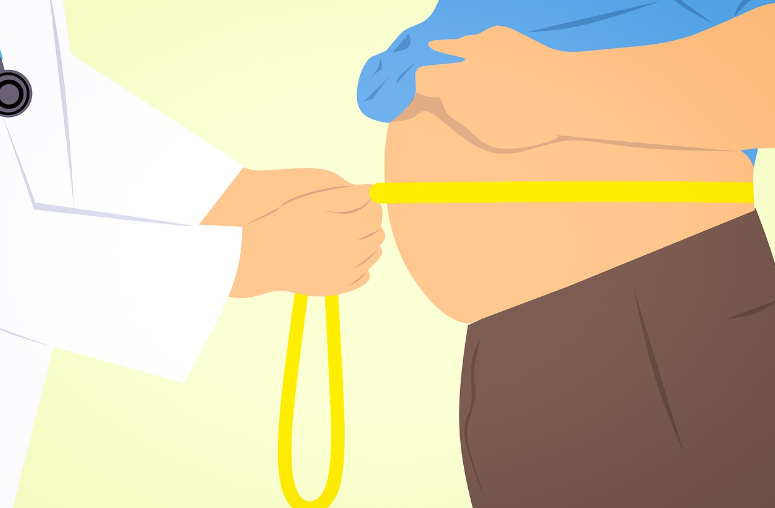

The Ozempic weight loss popularity explosion has raised a dilemma for health insurance companies, government agencies, and other payer organizations, as they figure out how equitable it will be to satiate demand for cover for new weight loss drugs like Wegovy and Zepbound and dampen the obesity crisis without running themselves ragged.
Amid Ozempic and other new diabetes and weight loss drugs’ booming popularity, healthcare payers – including insurance carriers – remain uncertain of the return on investment (ROI) of new weight loss drugs.
While health insurers have started to offer cover for new weight loss drugs, insurance and healthcare professionals are typically looking to what was described by an actuarial expert as a cautious approach and it is believed that more research on potential fiscal and social benefits of widespread cover for drugs like Wegovy and Zepbound is needed.
What is seen as a prohibitive pricing given the scope of the obesity epidemic may make it untenable for many health insurance companies, other payers, and plan sponsors to continue to provide widespread coverage for the drugs outside of the most extreme cases and it will take time to understand what any return on investment (ROI) might look like even with the benefit of cutting down on obesity-related costs, according to Greg Warren, partner and consulting actuary with Axene Health Partners and a fellow at the Society of Actuaries.
“Plan sponsors are thinking, do I need to cover it, should I cover it, would it help avoid hospital costs downstream if we had less obesity?” Warren told Insurance Business, acknowledging that the answer to the final question could well be a yes.
However, he caveated: “But [they also need to know] what the return on investment is.”
“New-generation” anti-obesity medications like Wegovy and Zepbound, which contain the same active ingredient as diabetes medicines Ozempic (semaglutide) and Mounjaro (tirzepatide) respectively, have led patients to achieve weight loss of 15% to more than 20% in clinical trials, the New England Journal of Medicine has reported.
The market for the new weight loss medications is there and business is booming, with the drugs having been touted by some as a solution to America’s obesity emergency and a way to cut down on care costs.
Prescriptions for GLP-1 receptor agonist drugs like Ozempic were up 300% between 2020 and 2022, according to Trilliant Health research, while national spending on semaglutide – the non-brand name for Ozempic and Wegovy – hit $10.7 billion in 2021, ranking it fourth across drug classes.

The United States has been facing an obesity crisis:
While there has been excitement around the weight loss drugs, the prognosis from some corners has not been entirely positive.
If 80% of Americans with obesity started to take Ozempic at its current cost, “it would bankrupt the health care system,” Dr Richard Kahn, former chief scientific and medical officer at the American Diabetes Association, has told the New York Times.
And John Cawley, professor of public policy and economics at Cornell University, has cautioned that while “meaningful reductions” could be achieved for individuals with extreme obesity, it is likely there would be no economic care benefit for new weight loss drug users who are classed as overweight or class 1 obese (those with a BMI of 30 to less than 35), even before factoring in the drug cost.
While Medicare is unable to provide cover for obesity medications, it too could ultimately find itself grappling with similar questions as other payers, the Associated Press has reported. A Treat and Reduce Obesity Bill has garnered bipartisan support and, if it passes, this could see Medicare able to cover weight loss treatments.
The Society of Actuaries has commissioned a research project in partnership with Axene to better understand the total cost of care impact and ROI of new GLP-1 drugs, Warren told Insurance Business.
Mounjaro, Ozempic, Wegovy, and Zepbound all have different list prices, with ultimate cost to the patient influenced by multiple factors:
Ozempic and Wegovy are brands manufactured by Danish pharmaceutical business Novo Nordisk:
Mounjaro and Zepbound are brands manufactured by US pharma giant Eli Lilly:
Nearly half of respondents to a 2023 KFF Health tracking poll said they would be interested in taking a safe and effective weight loss drug, though just 23% said they would be interested if it was administered via a routine injection, as is the case for FDA approved Wegovy and Zepbound.
Seven in 10 adults surveyed by KFF reported having heard at least “a little” about new weight loss drugs, which KFF said included Ozempic, Wegovy, and Mounjaro.
The explosive extent of the popularity of drugs such as Mounjaro, Ozempic, Wegovy, and Zepbound has in part been driven by a viral social media spike.
“Within actuarial circles, pharmacy circles, pharmacists, clinical pharmacists, managed care circles, there's even discussion now about, ‘what's the TikTok effect, and how do we quantify that?’” Warren said.
In 2022, off-label use of blockbuster drug Ozempic spawned a #MyOzempicJourney TikTok trend, Variety reported. The #Ozempic hashtag has been viewed hundreds of millions of times, according to a New York Times report.
Showbiz gossip has fueled further interest, with some stars – reportedly including Khloe Kardashian – having clapped back at speculation they had used Ozempic or other GLP-1 drugs to lose weight.
Others, like Tesla CEO and world’s richest man Elon Musk, have openly said they have used the new treatments. Musk has in part attributed a 30lb weight loss to Ozempic/Wegovy.
Fasting + Ozempic/Wegovy + no tasty food near me
— Elon Musk (@elonmusk) November 16, 2022
“Of course, not all people eligible are going to get [the drugs] – and couldn't and probably shouldn't, so that brings up that question: what kind of inflammatory projections or illustrations are various folks putting out there [and] how does that affect people's impressions?” Warren said.
Mis-use of the drugs for cosmetic weight loss purposes has pushed Eli Lilly, which on Thursday launched its telehealth weight loss and diabetes LillyDirect service, to issue a warning against the use of its tirzepatide drugs Mounjaro and Zepbound for cosmetic effect.
“Lilly Stands Against the Use of its Medicines for Cosmetic Weight Loss: Mounjaro and Zepbound are indicated for the treatment of serious diseases; they are not approved for – and should not be used for – cosmetic weight loss,” Eli Lilly said in a January 4 open letter.
Eli Lilly, the maker behind some of the popular drugs used for weight loss, issues a warning for people who use them for cosmetic reasons, saying that the medications are meant for "treatment of serious diseases." @eriellereshef reports. pic.twitter.com/4bevC4IIrC
— Good Morning America (@GMA) January 5, 2024
Soaring demand for Ozempic, meanwhile, has driven global shortages.
Medicines agencies cautioned in December that they expect issues to continue throughout 2024, while healthcare experts have called for health professionals to only provide Ozempic prescriptions to patients with diabetes to limit impacts on those who need the drug most.
Amidst the shortage, the FDA has warned it is investigating counterfeit Ozempic in the US drug supply chain.
As insurers and other stakeholders weigh up the ROI and insurance implications of new FDA approved weight loss drugs like Mygovy and Zepbound amid strong demand, they may also find their wants in conflict with those of pharmaceutical manufacturers.
The multi-use element of the drugs mean that different brands are FDA-approved for alternative purposes, but the weight loss drugs different prices to those approved for diabetes treatment. Eli Lilly’s Mounjaro and Zepbound are the same strengths, which is not the case for Novo Nordisk’s Ozempic and Wegovy.
“It's the same drug and has a different price based on what it is prescribed for, which is quite new,” Warren said. “The payers, plan sponsors, employers, health plans, even government payers like Medicaid entities have to be thinking, ‘how do we get this for our weight loss patients at the lower price of the two? How do we get them all at the lower price of the two?’
“And of course, the pharma manufacturers are thinking, ‘how do I get the higher price for as many as possible?’ – and that's not to vilify them, per se, they're trying to make more profits they can reinvest into more cures and more treatments for society.”
And while the drugs have proved hotly popular, they have not been entirely without controversy.
Lawsuits have alleged that Novo Nordisk and Eli Lilly downplayed or did not sufficiently warn users of side effects such as stomach paralysis, Reuters has reported.
Morgan & Morgan attorneys have claimed they are investigating 10,000 claims over the drugs. Eli Lilly and Novo Nordisk have labelled allegations “without merit”, Reuters reported.
The FDA has also confirmed it is evaluating the need for regulatory action around potential side effects of hair loss, suicidal thoughts, and aspiration in users of GLP-1 receptor agonist drugs, including but not limited to Ozempic and, Mounjaro, Wegovy, and Zepbound in recent warnings.
A large US study has found no evidence of Ozempic or Wegovy being connected to an increase in suicidal thoughts, Reuters reported in January.
Glucagon-like peptide-1 (GLP-1) receptor agonists are medications that have boomed in popularity due to their potential to help with weight loss.
Semaglutide is the active ingredient in Ozempic and Wegovy:
Tirzepatide is the active ingredient in Mounjaro and Zepbound:
There are also competing views around whether diet and exercise, rather than drugs, is a better and healthier fix for the obesity crisis.
A recent study published in The Obesity Society’s journal found that patients taking semaglutide (the active ingredient in Ozempic and Mygovy) were more likely to stick to their regime over the course of a year than those taking older obesity medications.
However, manufacturers and fitness experts have clashed over adherence rates to both weight loss drug and exercise regimes.
Actuaries like Warren are hoping for more research and collaboration to build an objective view on the best course of action to help treat obesity.
In the meantime, with drugs like Mounjaro, Ozempic, Wegovy, and Zepbound continuing to be highly sought after including off-label, Warren predicted that payers and plan providers will continue to require individuals identified as most in need to undergo sequential assessments to secure cover, starting with diet and exercise monitored under medical supervision.
“If that fails, in spite of appropriate effort, then you can move on to one of the lesser cost obesity drugs,” Warren said. “If you try that and then it fails to work with all the right effort involved, then you can move on to having the new drug — that's how most people are thinking about it.”
With new obesity treatment drugs orforglipron and retatrutide also undergoing research, healthcare payers may be hoping incoming competition and a more saturated and more effective weight loss drugs market solves a key weight loss drug cover ROI caveat: cost.
What’s your take on the rise of weight loss drugs like Wegovy and Zepbound on the back of Ozempic’s popularity? What will be the insurance impact? Share a comment below.
